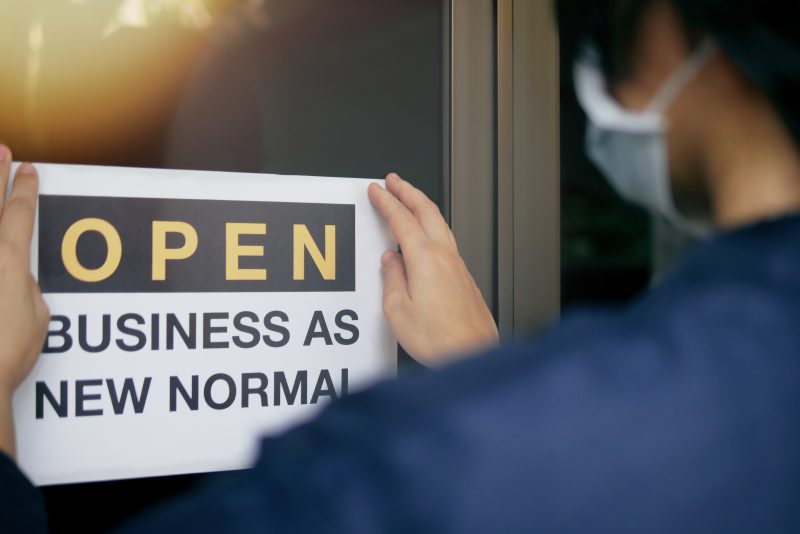Small businesses are breaking up – with their banks
In South Florida as well as around the nation, small business owners applying for the Paycheck Protection Program often struck out with big lenders like BofA or Wells-Fargo – even when they had been loyal customers. They had better luck with smaller, community banks that were less deluged with applications and more nimble. According to the Small Business Adminstration, about 52% of the loans and 44% of the PPP program dollars were approved by local, community banks and specialty lenders. That’s huge considering that banks with less than $10 billion of assets account for just 14% of the industry total of deposits, according to the Federal Deposit Insurance Corp.
In pre-COVID times, the pain of changing banks — transferring balances and syncing incoming and outgoing payments to new account numbers – is a hurdle stopping many from making the switch. But community banks nationwide are reporting that small business owners who felt unserved by their banks are voiced their displeasure by moving their money elsewhere or at least opening an additional account as a thank-you for PPP service.
And survey numbers show the trend too. Of businesses that secured PPP funding, about 28% received their loan from a lender with whom they had no prior relationship or a bank that wasn’t their primary one, according to a July survey of 931 firms conducted by Barlow Research Associates. About 44% of those borrowers said they would move at least some of their accounts and loans to the bank that came through for them during PPP, the survey found.
Expect language changes coming to a commercial lease near you
Chalk this up to yet another change coming for small business, thanks to the COVID-19 pandemic.
The language in retail and restaurant leases is changing as a result of the Covid-19 pandemic.
New leases are being written with substantial changes, particularly in regard to provisions that provide relief for tenants that are unable to fulfill their contract obligations because of circumstances out of their control, such as a natural disaster or pandemic. The language in these provisions is often broad, and landlords did not interpret them to apply to shutdowns caused by a pandemic.
Now experts are saying new clauses will include language that states that should there be any government-mandated business closures – whether by city, county, state or federal agencies – the tenant would be protected with partial rent abatement. That also protects the landlord, as these agreements often add that the tenant would need to pay a minimum rent to cover costs like property taxes and maintenance, he said.
Other experts have been seeing clauses that outline what spaces are available for extra seating, fulfilling curbside and/or delivery orders should government restrictions be enacted again.
Sorry – not covered: Business interruption insurance lawsuits stack up
As more small businesses grapple with the economic impacts of the pandemic, more than 100 South Florida businesses have insurance cases pending in state circuit courts and federal courts, according to a database of COVID-19-related complaints maintained by the law firm Hunton Andrews Kurth. Among them are well-known restaurants and attractions as well as medical practices and manufacturers.
“Almost all of the insurance cases are business interruption,” Walter Andrews, partner and head of the insurance practice group at Hunton Andrews Kurth’s Miami office, told the South Florida Business Journal.. “Businesses have lost so much money because of shutdown orders so I expect we’ll keep seeing more of this litigation.”
Andrews said insurers are spinning a “false narrative” when they argue they don’t cover pandemics and expect the floodgates to open in the next couple of months, he said, as he knows his firm and several other big firms plan to file a number of cases in the coming weeks.
All business interruption insurance is not alike, the industry says. Mark Friedlander, spokesman for the Insurance Information Institute, told the SFBJ that some of the business interruption claims in litigation are not legitimate because property insurance policies don’t necessarily list every exclusion. Instead of looking at whether viruses are excluded by their insurance policy, business owners should take note of which events are covered, he added. “Unless viruses, bacteria and contamination issues are specifically stated as covered, you don’t have the coverage,” Friedlander said.
Across the U.S., courts so far have sided mostly with insurers. But thousands of cases nationwide, including the 100+ in South Florida, are pending. One of them is The Restaurant People of Fort Lauderdale, owners of 14 South Florida restaurants, that lost 98% of its revenue during the six weeks its restaurants were forced to close their dining rooms between late March and early May and decided to sue after their insurers said their policies excluded losses due to viruses and pandemics, the company said.
Adding insult to injury, small businesses are already reporting their insurance premiums are increasing upon renewal.
Please send GrowBiz topic suggestions and feedback to GrowBiz@FIU.EDU.

